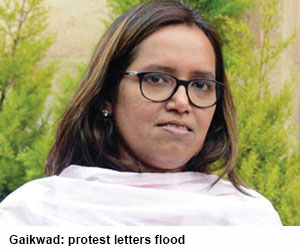
The state government’s confusing notifications and GRs (government resolutions) issued since the lockdown began in mid-March, are to a great extent to blame for their predicament. Even as private schools were yet to collect fees for the April-July quarter, a May 8 GR warned private school managements of stern action if they compel parents to pay pending dues or make payment of admission and term fees for the academic year 2020-21 a precondition of admission.
Moreover, another government circular (June 15) banned online teaching for pre-primary-class II children and reopening of preschools until the end of 2020. The government’s circular effectively made 9,000 preschools across the state and the teachers employed in them, redundant until the end of this year.
With a large number of private primary-secondaries laying off contractual teachers in the past three months to reduce expenditure, managements of the state’s 22,477 budget private schools (BPS) have been crying foul since May, about being unable to pay the emoluments of 80,000 teachers and support staff. In a letter to the state’s education minister Varsha Gaikwad, several budget private school associations — the Maharashtra English School Trustees Association (MESTA, estb.2014), Private Unaided School Managements Association (PUSMA, 2000), Independent English Schools Association (IESA, 2014), and the Unaided Schools Forum (USF, 1980) — have stated that nearly 40 percent of their member schools are unable to comply with the government’s June 15 directive to provide online education to classes III-XII due to financial difficulties.
For managements of private unaided (independent) — especially budget private schools — which are being exhorted to continue paying teachers and staff without getting any mention in the MSMEs (medium, small and micro enterprises) stimulus package announced by finance minister Nirmala Sitharaman in May, the most unkindest cut is that the state government has shown no signs of paying up the Rs.700 crore it owes them for the academic years 2017-18 and 2018-19 as compensation for admitting poor children in their neighbourhoods and providing them free-of-charge education in primary/elementary (classes I-VIII) under s.12 (1) (c) of the Right of Children to Free and Compulsory Education (RTE) Act, 2009. S.12 (2) obliges state governments to reimburse private unaided schools the expense incurred for educating students admitted under s.12 (1) (c) by paying them the equivalent of per child expense it incurs in its own state schools. In the circumstances, BPS which don’t have the wherewithal to switch to digital online learning, are in no condition to continue paying teachers and staff salaries.
Meanwhile, teachers of 7,000 schools dispensing education in vernacular languages including Marathi, Hindi and Urdu to 1.5 million students in rural Maharashtra unserved by government schools, have also been left high and dry. Charging fees as low as Rs.1,000-5,000 per annum, these schools were promised “100 percent grant” in 2009. But with subsequent governments changing eligibility rules and policies, only 399 of these primary-secondaries have received the grants promised to them for the period 2012-16 after which the grant amount has been reduced to 20 percent of expenses per annum.
“Teachers of unaided schools across rural Maharashtra have participated in 300 protest marches over the years but they have made no impact in the education ministry in Mumbai. For years, we have been paid just Rs. 7,000-10,000 per month — way below the scales prescribed by the Seventh Pay Commission and what government school teachers are paid. At least 20 teachers have lost their lives due to mental and financial stress since the lockdown. We urge the government to release the funds due to us and save the lives of teachers,” says Shubhangi Patil, president, Maharashtra Teachers Association.
On June 25, admitting four petitions filed before it, the Bombay high court stayed the state government’s May 8 order regarding fees collection and increases for 2020-21 as well as all compliance communications from the education ministry to schools until the next hearing slated for August. While the court order is likely to bring some relief to school managements, for teachers the outlook remains cloudy.
Dipta Joshi (Mumbai)
Also read: West Bengal: Brightening horizon